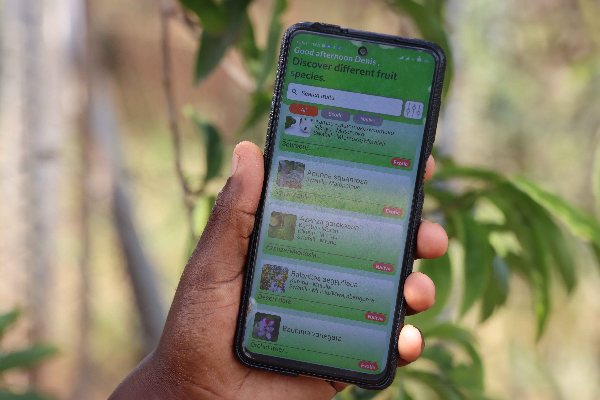The Center for International Forestry Research and World Agroforestry (CIFOR-ICRAF) have released a new smartphone application to help fruit tree smallholder farmers in Eastern Africa become more resilient to the impacts of climate change while improving income and nutritional security.
Dubbed Kuza Matunda, meaning ‘grow fruits’ in Swahili, the app informs farmers on how to incorporate fruit trees into landscapes best to increase overall farming resistance to the impacts of climate change.
It utilises an extensive database of suitable tree species tailored to local conditions. It provides users with reliable information on fruit tree growing, such as site selection, tree management practices, seedling establishment, irrigation, fertilisation, disease and pest control, and pruning techniques.
The app was developed as part of ongoing ACIAR-funded research to enhance farm-level climate adaptation for smallholders in Kenya and Rwanda by increasing the stocking and strategic siting of fruit trees.
ACIAR Project Leader, Director and Regional Convener for East Africa at CIFOR-ICRAF, Professor Catherine Muthuri, said the app was developed in response to project staff’s high demand to provide training and information to interested farmers.
“This digital innovation brings useful information closer to farmers and extension agents. Access to relevant information is critical to adopting appropriate management practices for sustained fruit-growing that contributes to increased productivity, household food and nutrition security, climate resilience and sustainable livelihoods,” said Professor Muthuri.
Available in local languages
The app is available in three local languages (Kikuyu, Kamba, and Swahili). It includes information on nearly 180 different native and exotic species, including ideal conditions for the trees, the nutritional value of the fruit, and management practices, including pollination, pests and diseases, growth rates and propagation techniques.
ACIAR Research Program Manager, Forestry, Dr Nora Devoe, welcomed the development of the new app and the positive impact it will bring on helping rural communities further incorporate fruit trees into local agrifood systems.
“ACIAR is keen to support the development of tools to help farmers increase tree stocking on farms and in the wider landscape. Fruit trees, with their obvious environmental, nutritional and income benefits, are attractive to farmers. We are pleased that this new app will support extension agents and farmers to get the right trees in the right places,” said Dr Devoe.
Integrating trees into agricultural landscapes
ACIAR has been funding CIFOR-ICRAF for more than a decade to investigate how agroforestry and the integration of trees into agricultural landscapes can benefit household food security and enhance farm-level climate adaptation.
The current project will help inform future ACIAR investment on how practices like agroforestry can help regreen landscapes and fit into climate-adaptation pathways so that rural communities can become climate-ready. The project also explores how farmers can access international climate finance for the carbon sequestration their trees provide.
Learn more about the project via the ACIAR website and download the Kuza Matunda app on Android via the Google Play Store.









